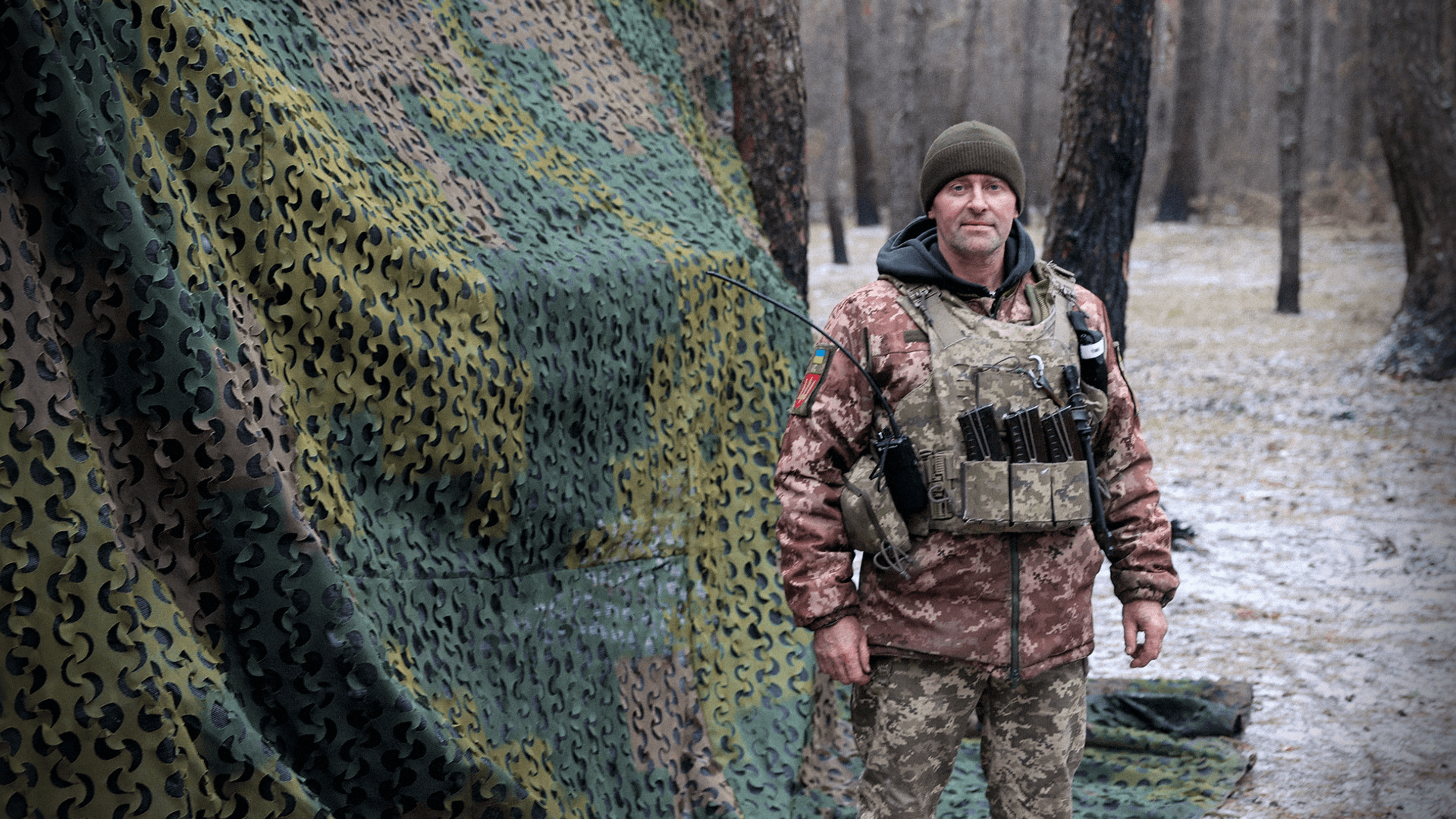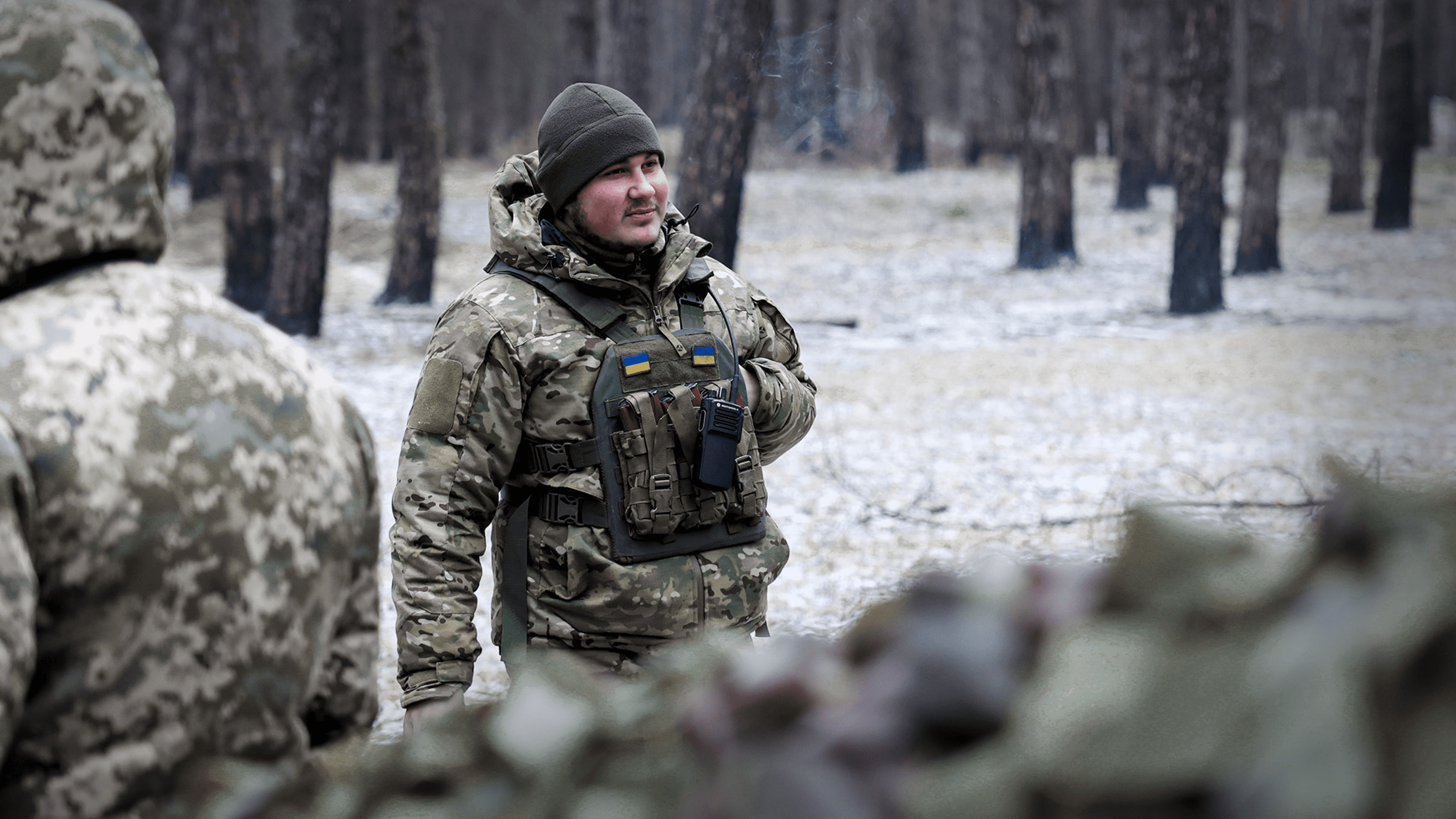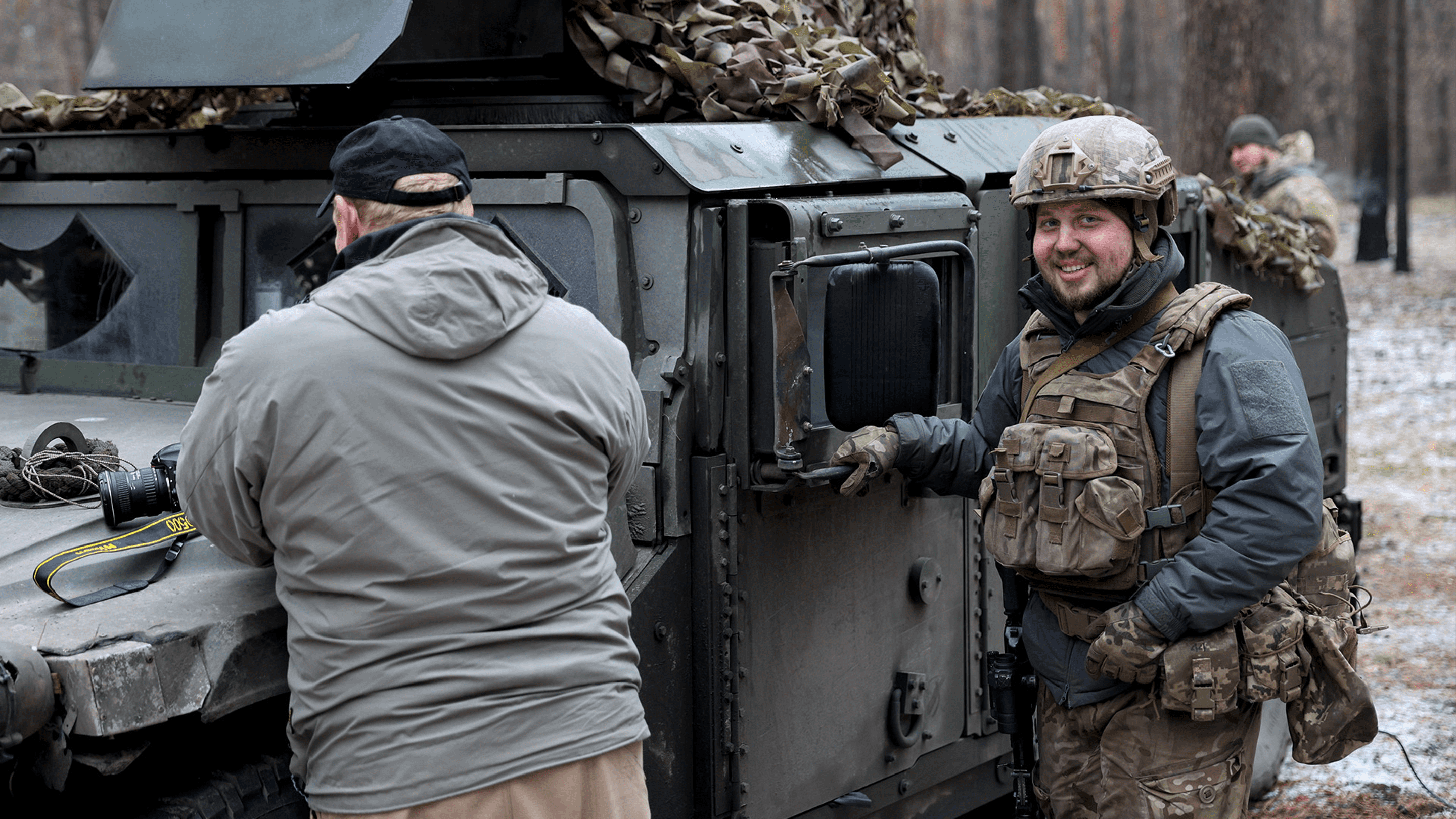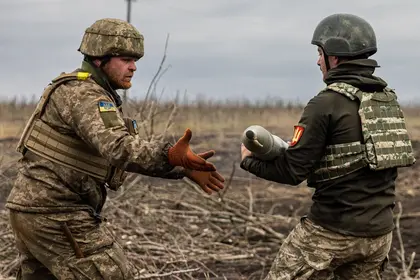They don’t act like members of an elite unit operating not just Ukraine’s but the war’s most powerful ground weapon. In conversation, they mostly come off as typical Ukrainian soldiers.
A very select few soldiers and officers of the Armed Forces of Ukraine (AFU) drive, secure or press the "fire" button of the U.S.-manufactured M270 rocket artillery system, a weapon capable of launching a dozen missile salvo up to 80 kilometers, with each precision-guided munition able to strike a separate, pre-programmed sixteen-digit grid coordinate.
By contrast, the Russian army contains nothing even remotely comparable.
The number of M270 vehicles and their crew count is a Ukrainian military secret, but, according to open sources, France, Germany and Britain have probably donated around 15 weapons to Kyiv. Even when security, maintenance and support personnel are included, most likely, no more than 200 Ukrainian soldiers or officers, in the entire million-man AFU, are directly involved in M270 fire missions.
Senior Sergeant Volodymyr Merlin is one of them.

Senior Sergeant Voldymyr Merlin stands next to an M270 rocket artillery piece at a hide location in east Ukraine. Jan. 16. Photo Credit: Phil Ittner.
Merlin, who is 52, lived in Lviv Region before the war. He is married and has two grown-up daughters, and prior to Russia’s Feb. 2022 invasion of Ukraine had led a purely civilian life, working in construction, mostly as a ceramic tile floor installer. Retirement and grandchildren were on the horizon.

EU Transfers €1.5 Bln Raised From Russian Assets for Ukraine
Military service was far in the past, "When I was still young" – Merlin served as a draftee in the early 1990s.
Merlin’s local induction board, according to his account, still had his service records showing a tour as a low-level private at the Baikonur space center in Kazakhstan, the site of most Soviet and later Russian space shots.
He then transferred to a missile and rocketry research facility in Belarus where, he said, he worked in supply.
The Lviv Region draft board assigned Merlin to the 107th Rocket Artillery Brigade, which started its role in the current war operating Soviet-era Smerch heavy rocket artillery systems. In May and June 2022, the 107th was tapped to operate the extremely powerful NATO-standard M270 rocket artillery system.
Merlin’s wartime job is that of vehicle commander: he’s the boss of a three-man crew, along with an operator and driver, riding in an individual vehicle, in his case a system formerly operated by Great Britain’s Royal Artillery.
The most responsible part of his job, he said, is making sure the vehicle sets up at precisely the right launch location, and then, after a launch, getting the vehicle moving fast and precisely to the next hiding location.
Communications security is a matter of life and death - No target on the battlefield is more sought after by the Russian air force and artillery, than an M270 launcher and its crew, he said.
Asked about his feelings during a missile launch, Merlin said: "It feels good, like we are sending something back at the people who attacked us."
Merlin said he joined the 107th in April. Mrs. Merlin supported his mobilization into the AFU and his assignment to a combat unit, he claimed.
Lieutenant Myroslav Hopko*, 22, is a professional soldier and a military academy graduate. He is not married and his family lives in Lviv Region.

Lieutenant Myroslav Hopko speaks with members of the 107th Rocket Artillery Brigade in east Ukraine. The unit is equipped with the U.S.-manufactured M270 rocket artillery system, Jan. 16.Photo Credit: Phil Ittner.
In the AFU, unlike in some NATO armies, artillery is considered a desirable, fast-career track specialty. Prior to the present war, he had no combat experience, but fortunately for him Hopko graduated fairly high in in his class and so was selected to join the elite 107th Rocket Artillery. When the unit began its transition to the M270, he was one of the very few officers in the entire AFU selected to go to Great Britain and learn how to operate the system.
Hopko’s wartime job is commanding a section of M270s, making him responsible for everything: the men, equipment, passage of information, where and how the weapons set up, and the speed and accuracy of the launches.
He told Kyiv Post he has fired multiple missions personally. Asked what it feels like to launch a salvo of precision-guided American missiles at Russian troops invading his country he said: "When I think about it afterwards, I guess it’s gratifying, but at the moment everyone is just completely focused on executing the mission and getting everything right…we have no right to make errors, ever."
Hopko told Kyiv Post he has no idea when the war will end and that he doesn’t know whether he’ll stay in the army after that. Commanding an M270 section and its men is a rewarding job and one of the best in the AFU, he said, but a peacetime army might not be for him. It’s impossible to know, right now, when the war will end, he said.
Sergeant Maksym Vyhodynsky*, 25, is originally from Chernivtsi and Vinnytsya Regions where, he said, he was a strongly-performing student with an open path to university education.

Sergeant Maksym Vyhodynsky stands next to a U.S.-manufactured armored HMMWV car in a forest in east Ukraine. His unit, the 107th Rocket Artillery Brigade, is also equipped with long-range rocket systems and heavy machine guns made in the U.S.
But academia wasn’t interesting, and in the late 2010s – although most of the world didn’t really notice – Ukraine had already been invaded by Russia, so once he graduated Vyhodinsky joined a local counter-terrorism team. He is not married, has no children "that I know of", and declined to give details on girlfriends.
By 2020 Vyhodynsky had signed a contract with the AFU and part of a regular army reconnaissance unit, with which he saw action in Donbas. Following the second Russian invasion of Ukraine, he had joined the 107th as a member of special security detail dedicated to keeping M270 systems intact and its operators safe.
On fire missions, he said, everything that might hurt the system and gunners – mines, ambushes, civilian spies, the Russian air force, enemy artillery, even auto accidents – are his job to anticipate and have a plan to defeat.
The AFU’s M270s are constantly on the move and at each hide site, he said, he needs to make sure the vehicle is under a camouflage net and, if possible, a wire roof he built personally, because it turns out that chain-link fencing or something like it will stop an incoming Russian kamikaze drone.
Kyiv Post interviewed more than a dozen members of the 107th and asked each one when he thought the war would end. None had any guess at all, except for Vyhodynsky: "I am like my mother, I have always had strong intuition. My feeling is the war will end in February 2024."
*Hopko and Vyhodynsky requested that Kyiv Post use pseudonyms to protect their identities. A military escort accompanied Kyiv Post journalists during reporting for this story, but, stood far away, out of earshot, and did not interfere during interviews with soldiers.
You can also highlight the text and press Ctrl + Enter






